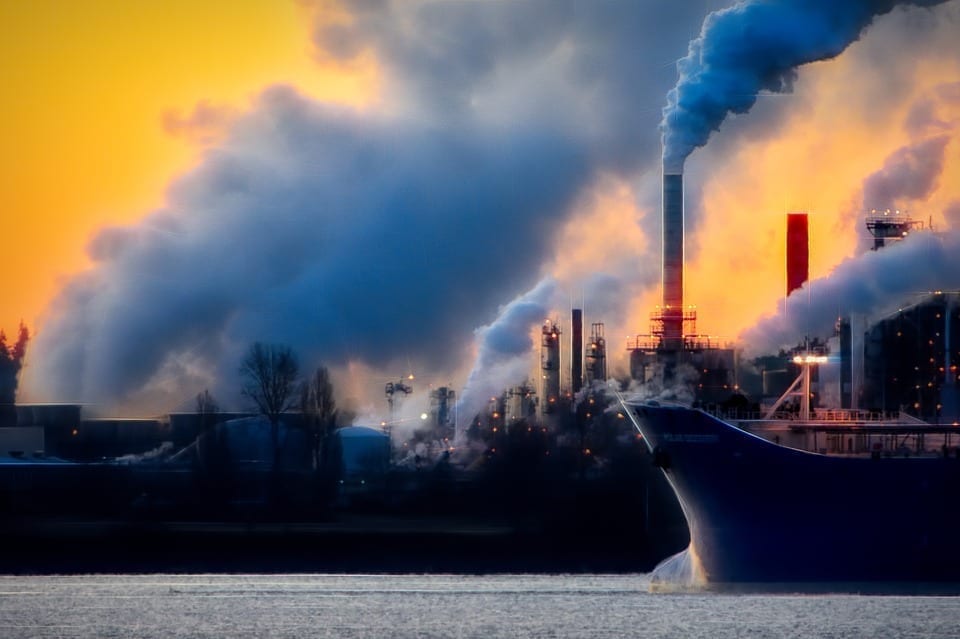Former NASA scientist James Hansen suggests suing polluters to make progress towards preserving a livable biosphere. Is it better than our other options?
When people are genuinely interested in solving a problem, they can often make inroads to finding a workable solution. However, when they’re not terribly motivated to do so, they offer the next best thing: thoughts and prayers. We see it all the time after each mass shooting, because it would be too politically suicidal to try hammering out a legislative solution. Splashy gun violence isn’t the only problem that both business and government hope will be “solved” by the righteous application of thoughts and prayers, though. The same could be said for pollution and climate change, and we can expect roughly the same outcome. We have to try something else if we want different results. That’s why climate scientist James Hansen suggests suing polluters as a way to make actual progress towards preserving a livable biosphere.

Hansen is a former NASA scientist who has become a prominent advocate for decisive action on climate. He sounded the alarm back in 1988, when he testified before a Senate committee regarding the science behind our understanding of climate change. Now, Hansen endorses the idea of suing polluters, like the 100 companies identified in a study earlier this year as being responsible for 71% of the greenhouse gases released in the last 30 years.
Those who profit from pollution probably aren’t going to change on their own. They’re more likely to adopt the “thoughts and prayers” strategy for mitigating climate change. Predictably, there’s a sizable overlap between these folks and the ones who stress individual action and market choices as the best route forward. Sure, we could all reduce our carbon footprints, especially by making reductions in family size and rethinking our transportation options, but in this industrial culture it’s difficult to make a real difference all by ourselves, especially when those around us don’t seem to be intentionally limiting their own consumption. We don’t have much time, if any, left to wait.
The next obvious step is legislation. Passing laws against certain forms or levels of pollution is not unheard-of; after all, that’s how we have rivers that don’t go up in flames anymore. Unfortunately, greasy-palmed lobbyists often grab a larger share of Congressional attention than do most constituents, at least judging by who gets their preferences enshrined in law. In short, if we wait for Congress to stop climate change, we might as well start building those lifeboat communities and rural doomsteads.
That leaves suing polluters as one of the best methods of righting this particular wrong. According to James Hansen, “the judicial system is the only way to get the funds needed to deal with climate change.” Besides acting as a deterrent to increased pollution, compensatory and punitive monetary damages could go a long way towards implementing real solutions on a larger scale than any of us could do individually, or that Congress would ever consider legislatively.
Happily, there are lawsuits currently underway. Ohio Attorney General Mike DeWine filed suit this month against Dallas-based Energy Transfer Partners (you may remember them from the Dakota Access pipeline fight) over environmental violations surrounding their Rover Pipeline project that is slated to run for 713 miles through several states and into Ontario, Canada. Another lawsuit, this time over pollution from factory farms, filed by Public Justice, aims to protect groundwater and defend public health in Yakima Valley, Washington. There are certain to be others.
One thing to remember, though. Companies foul the water and air because the public demands cheap and plentiful goods and energy. Suing polluters to recover the costs of cleaning up their messes, if it works as intended, may well mean that the products we use on a daily basis become more expensive and we’ll have to use less of them. However, any solution to pollution that doesn’t involve using less energy and stuff will never succeed. Perhaps this is why, when the rubber meets the road, most of us also prefer “thoughts and prayers” to the sort of concrete actions that would ensure that our descendants have a prayer of their own.
Related: So, About Those 100 Companies…


Join the conversation!